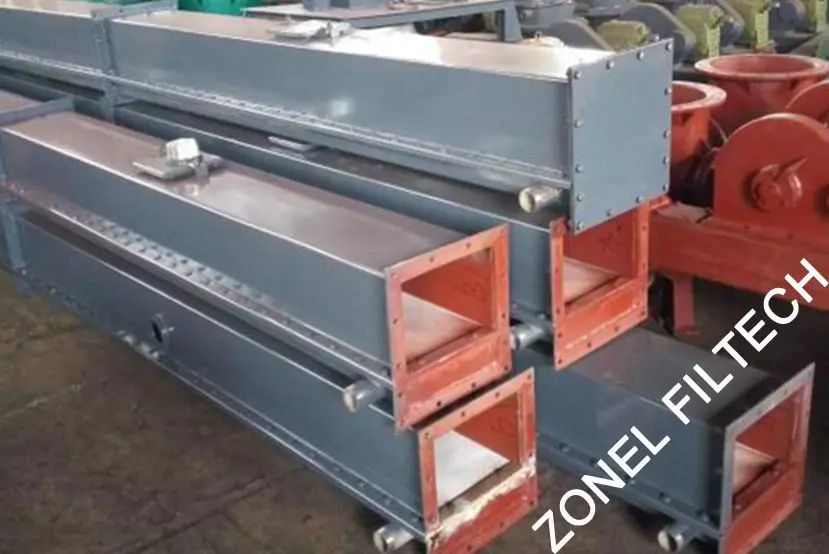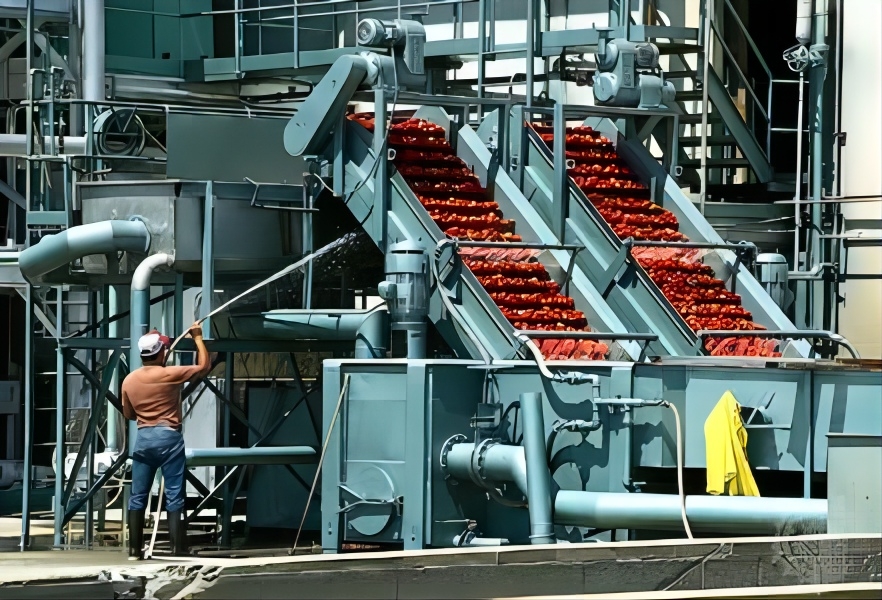Pneumatic conveying systems are integral to numerous industries, including food processing, pharmaceuticals, chemical manufacturing, and bulk goods handling. These systems are designed to transport a wide variety of materials through pipes using air or other gases.
The choice of the right system depends on several factors specific to the type of materials handled, the operational requirements, and the industry standards. This article provides comprehensive guidelines to help you select the most appropriate pneumatic conveying system based on your industry needs, material characteristics, and operational demands.

Table of Contents
ToggleUnderstanding Pneumatic Conveying Systems
Before diving into the selection process, it’s crucial to understand the basics of pneumatic conveying systems. These systems are primarily classified into two types: dilute phase and dense phase.
- Dilute Phase Conveying: In this system, materials are suspended in the air as they are transported. It is suitable for materials that are non-abrasive and not prone to degradation. Dilute phase systems can be further divided into positive pressure systems, which push materials from the starting point to the destination, and negative pressure (vacuum) systems, which pull materials.
- Dense Phase Conveying: This type of system moves materials at a lower velocity than dilute phase systems, making it ideal for abrasive or fragile materials that require gentler handling. Dense phase conveying can minimize material degradation and is suitable for handling mixtures of materials with varying particle sizes.

Industry Needs
Each industry has distinct requirements that can considerably affect the selection of a pneumatic conveying system:
- Food Industry: Necessitates systems that are simple to clean and sanitize, thereby reducing contamination risks. Systems employed in this industry must also adhere to food safety regulations, like those set by the FDA or EU standards.
- Pharmaceutical Industry: Focuses on preventing contamination and ensuring the quality of materials. Systems must be made of materials that do not react with the products and should be capable of precise control over material flow to maintain dosage accuracy.
- Chemical Industry: Demands sturdy systems capable of safely managing corrosive or hazardous materials. Chemical-resistant materials and explosion-proof configurations might be necessary.
Material Characteristics
The physical and chemical characteristics of the materials you need to convey play a pivotal role in system selection:
- Particle Size and Shape: Coarse or irregularly shaped particles might necessitate a dense phase system to prevent damage or degradation.
- Abrasive Materials: Highly abrasive materials require systems with specially designed pipelines and fittings to resist wear.
- Moisture Content and Stickiness: Materials with high moisture content or stickiness may require additional considerations like heating elements or specially coated interiors to prevent material buildup.
Operational Demands
Operational efficiency and reliability are crucial considerations when choosing a pneumatic conveying system:
- System Capacity and Distance: The size of your operation and the distance over which materials need to be conveyed will determine the required system capacity and may influence the choice between dilute and dense phase systems.
- Energy Efficiency: Pneumatic systems can be energy-intensive. Selecting a system with energy recovery features or one that operates efficiently under your specific conditions can significantly reduce operating costs.
- Maintenance and Downtime: Consider systems that are easy to maintain and repair. Quick-coupling ductwork and easily accessible components can reduce downtime and maintenance costs.
Conclusion
Selecting the right pneumatic conveying system requires a thorough understanding of your industry’s needs, the materials you will be conveying, and the specific operational demands of your facility. Whether you opt for a dilute phase or a dense phase system, the key is to tailor the system to meet the unique challenges and requirements of your specific application.
Always consult with pneumatic conveying experts and consider conducting material tests to ensure compatibility and operational efficiency. With the right system in place, you can achieve a seamless, efficient, and cost-effective material handling solution tailored to your industrial needs.
